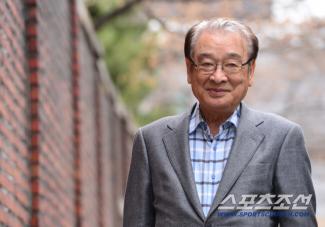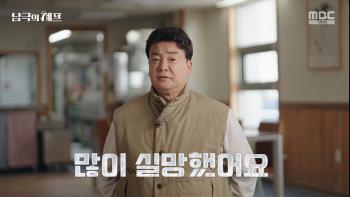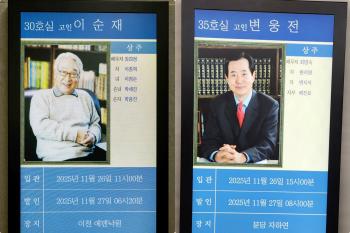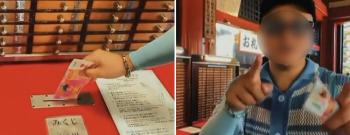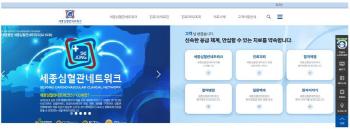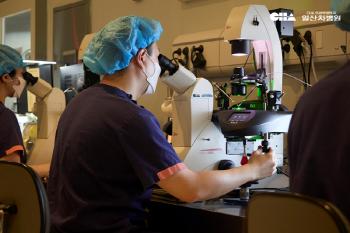Confirmation of the safety of hypothermia treatment for cerebral infarction patients who underwent vascular reopening
Nov 28, 2025
Research has shown that 'hypothermic treatment' which reduces brain damage by temporarily lowering body temperature can be safely applied to secondary brain damage that occurs after treatment for cerebral infarction.
Professor Han Moon-gu of the Department of Neurology at Seoul National University Bundang Hospital (Professor Kang Ji-hoon at Bundang Seoul National University Hospital, Jeong Jin-hun at Dong-A University Hospital, Hong Jeong-ho at Gyemyeong University Dongsan Hospital, Professor Junyoung Jang at Asan Medical Center, and Yeom Kyu-sun at Chungbuk National University Hospital) proved the safety of hypothermia treatment in cerebral infarction patients who underwent vascular reopening through the world's first multi-center randomized controlled clinical trial involving five medical institutions in Korea.
Acute cerebral infarction is a disease in which the carotid artery to the brain or blood vessels inside the brain are suddenly blocked by blood clots (blood clots). It is important to receive reperfusion treatment that restores blood flow as soon as possible because the later treatment is performed, the more necrotic brain cells that do not receive oxygen and nutrients, leaving permanent disorders.
However, the risk remains even if the treatment is successful in reperfusion by receiving timely treatment. Brain cells are destroyed again as blood is suddenly resupplied and a large amount of neurotransmitters that cause brain damage are produced. This aftereffect, called 'reperfusion damage', is known as a difficult problem for cerebral infarction because no preventive method has been established and the degree of damage cannot be predicted, such as secondary damage as soon as treatment is done well and relief occurs.
The most likely way to reduce such reperfusion damage is 'hypothermic treatment'. It is a principle that protects against major damage by reducing brain metabolism by lowering the patient's body temperature for a certain period of time during brain damage. This has been established as a standard treatment as it has been proven to be effective in minimizing reperfusion brain damage in patients who have been resuscitated after cardiac arrest worldwide.
The problem is that, unlike cardiac arrest, hypothermic treatment for cerebral infarction patients is limited in its use in the field because its effects and implementation criteria have not yet been clearly identified. This is because studies so far have only been retrospective observation methods in which variables such as △ target body temperature △ duration are not controlled.
Accordingly, the research team conducted a prospective study to confirm the safety of hypothermia treatment by randomizing and controlling 40 people who received cerebral infarction reperfusion treatment from December 2016 to November 2019. Patients who opened blood vessels within 8 hours of the onset of cerebral infarction were targeted, and aimed to maintain a hypothermia of 35℃ for 48 hours.
As a result, all patients maintained a stable target body temperature without tracheal intubation or ventilator during the course of hypothermia treatment, and adverse events such as decreased heart rate were reported at manageable levels. As for the clinical prognosis, there was no significant difference between the hypothermic treatment group and the non-treatment group, so it was found that it is necessary to verify the effectiveness through large-scale clinical trials in the future.
The study is expected to be a strong basis for preparing customized treatment guidelines as it reveals that hypothermia treatment can be safely performed in patients with cerebral infarction who have undergone reperfusion.
Professor Han Moon-gu said, "This study is the first prospective multicenter randomized controlled clinical trial in the world to present specific criteria and methods for safely applying hypothermia treatment to patients with cerebral infarction that has resumed blood vessels. As it is an active treatment in the United States and Europe, we hope that this study will objectively confirm and prove the effectiveness of hypothermia treatment through large-scale clinical trials in the future."
The results of the study were published in the world's most prestigious stroke journal 'Stroke (IF 8.4)'.
Professor Han Moon-gu of the Department of Neurology at Seoul National University Bundang Hospital (Professor Kang Ji-hoon at Bundang Seoul National University Hospital, Jeong Jin-hun at Dong-A University Hospital, Hong Jeong-ho at Gyemyeong University Dongsan Hospital, Professor Junyoung Jang at Asan Medical Center, and Yeom Kyu-sun at Chungbuk National University Hospital) proved the safety of hypothermia treatment in cerebral infarction patients who underwent vascular reopening through the world's first multi-center randomized controlled clinical trial involving five medical institutions in Korea.
Acute cerebral infarction is a disease in which the carotid artery to the brain or blood vessels inside the brain are suddenly blocked by blood clots (blood clots). It is important to receive reperfusion treatment that restores blood flow as soon as possible because the later treatment is performed, the more necrotic brain cells that do not receive oxygen and nutrients, leaving permanent disorders.
However, the risk remains even if the treatment is successful in reperfusion by receiving timely treatment. Brain cells are destroyed again as blood is suddenly resupplied and a large amount of neurotransmitters that cause brain damage are produced. This aftereffect, called 'reperfusion damage', is known as a difficult problem for cerebral infarction because no preventive method has been established and the degree of damage cannot be predicted, such as secondary damage as soon as treatment is done well and relief occurs.
The most likely way to reduce such reperfusion damage is 'hypothermic treatment'. It is a principle that protects against major damage by reducing brain metabolism by lowering the patient's body temperature for a certain period of time during brain damage. This has been established as a standard treatment as it has been proven to be effective in minimizing reperfusion brain damage in patients who have been resuscitated after cardiac arrest worldwide.
The problem is that, unlike cardiac arrest, hypothermic treatment for cerebral infarction patients is limited in its use in the field because its effects and implementation criteria have not yet been clearly identified. This is because studies so far have only been retrospective observation methods in which variables such as △ target body temperature △ duration are not controlled.
Accordingly, the research team conducted a prospective study to confirm the safety of hypothermia treatment by randomizing and controlling 40 people who received cerebral infarction reperfusion treatment from December 2016 to November 2019. Patients who opened blood vessels within 8 hours of the onset of cerebral infarction were targeted, and aimed to maintain a hypothermia of 35℃ for 48 hours.
As a result, all patients maintained a stable target body temperature without tracheal intubation or ventilator during the course of hypothermia treatment, and adverse events such as decreased heart rate were reported at manageable levels. As for the clinical prognosis, there was no significant difference between the hypothermic treatment group and the non-treatment group, so it was found that it is necessary to verify the effectiveness through large-scale clinical trials in the future.
The study is expected to be a strong basis for preparing customized treatment guidelines as it reveals that hypothermia treatment can be safely performed in patients with cerebral infarction who have undergone reperfusion.
Professor Han Moon-gu said, "This study is the first prospective multicenter randomized controlled clinical trial in the world to present specific criteria and methods for safely applying hypothermia treatment to patients with cerebral infarction that has resumed blood vessels. As it is an active treatment in the United States and Europe, we hope that this study will objectively confirm and prove the effectiveness of hypothermia treatment through large-scale clinical trials in the future."
The results of the study were published in the world's most prestigious stroke journal 'Stroke (IF 8.4)'.
|
This article was translated by Naver AI translator.




